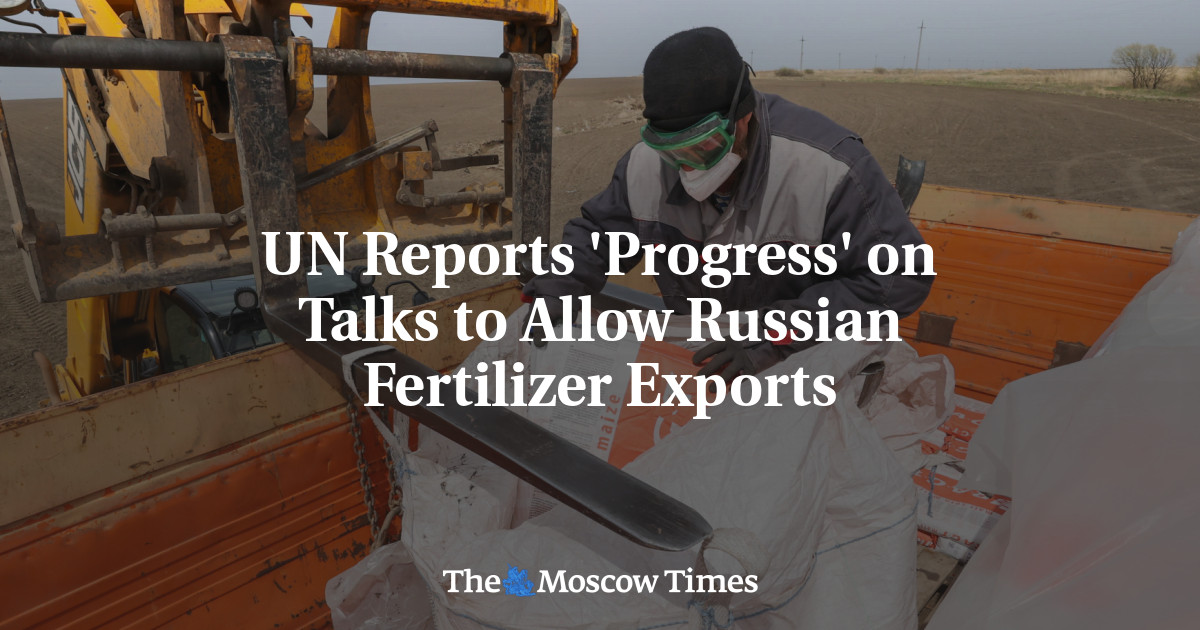
Negotiations underway to unblock exports of fertilizer from Russia have made “important steps forward,” one of the main United Nations negotiators said on Thursday, while acknowledging that there was still a way to go.
Russian grain and fertilizer exports continue to face issues over sanctions imposed after the Kremlin’s invasion of Ukraine, despite two agreements signed on Jul. 22 that called for sanctions to spare agriculture-related products and grant safe passage for Ukrainian grain exports.
The second of those agreements, brokered by Turkey and the UN, has been working quite well, allowing millions of tonnes of grain to leave Ukrainian ports, and relieving some fears over a deepening global food security crisis.
But concerns have been increasing over the future of the deal since Russia briefly exited it last week over a drone attack on its Black Sea Fleet in Crimea. The deadline for the renewal of the deal is on Nov. 19 and the Kremlin said on Thursday that it had yet to decide if it planned to continue its participation.
But UN trade negotiator Rebeca Grynspan told reporters in Geneva that she hoped “that the parties will be responsible and will extend and expand the Black Sea grain initiative.”
Grynspan also reported significant progress being made on a deal to allow Russian fertilizer exports to resume.
“We are working very hard making that facilitation, [and] have concrete results,” said Grynspan, who heads the UN’s trade and development agency UNCTAD.
“We have made important steps forward, but there is still a road to be traveled, especially with respect to the fertilizer crunch that we are seeing in the world.”
She acknowledged that fertilizer exports from Russia – the world’s largest producer – continue to face significant obstacles, but said “we have been clarifying and engaging with the EU, the U.S. and the U.K. to solve these problems.
“I think that we are making progress,” she said, adding though that the negotiators had not made “all the progress that I would want to see right now.”
“It is a difficult issue, it is a complex ecosystem,” Grynspan added.